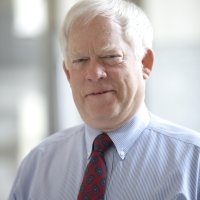Kerry in Asia: Fleshing Out the Rebalance
Newly-minted Secretary of State John Kerry is in Asia this week amidst a rising sense of crisis prompted by weeks of bellicose rhetoric and increasingly dangerous threats by regional bad boy North Korea.
Newly-minted Secretary of State John Kerry is in Asia this week amidst a rising sense of crisis prompted by weeks of bellicose rhetoric and increasingly dangerous threats by regional bad boy North Korea.
Newly-minted Secretary of State John Kerry is in Asia this week amidst a rising sense of crisis prompted by weeks of bellicose rhetoric and increasingly dangerous threats by regional bad boy North Korea.
That Kerry’s first official visit to Asia has been delayed until April has been the cause of considerable angst among U.S. friends in the region, who recall that Kerry’s predecessor, Hillary Clinton, chose Asia for her first overseas trip as secretary of state. Asian uneasiness has been reinforced by the fact that Kerry will have visited the Middle East on three occasions before touching down in East Asia. Was President Obama’s much-ballyhooed rebalance to Asia, some in the region are asking, nothing more than a first term flash-in-the-pan?
The announcement several few weeks ago that Obama’s new secretary of defense, Chuck Hagel, has ordered a review of U.S. defense strategy to determine whether the Pentagon can afford the rebalance to Asia has also raised eyebrows among Washington’s Asian friends. “I don’t yet know whether or if or how much our defense strategy will change,” the chairman of the Joint Chiefs of Staff said at the same time, “but I predict it will. We’ll need . . . to adjust our ambitions to match our abilities.”
U.S. friends in East Asia have certainly not been blind to Washington’s ever-more-obvious inability to deal rationally, let alone responsibly, with the huge fiscal challenges the country faces. Running the government of the world’s mightiest power by sequestration and threats of going over a “fiscal cliff” has utterly mystified those who look to the United States for leadership.
In light of America’s fiscal difficulties, they ask, will Washington be able to fulfill its promises to give greater attention and devote greater resources to Asia? Preoccupied with the country’s domestic problems, will the second Obama administration turn inward?
Reassuring Asian friends of Washington’s long-term commitment to the region will need to be Kerry’s first priority during his visit later this week, even more than coordinating on North Korea.
With respect to Hagel’s strategy review, there is clearly less here than meets the eye, although Kerry will not want to say this publicly. The secretary of state, however, can take note of the fact that Hagel assigned Deputy Secretary of Defense Ashton Carter, who has a long history of enthusiastic support for the Asia rebalance, to head the review. Indeed, the announcement of the review came while Carter was in the middle on a high-visibility visit to Asia where, during his stopover in Jakarta, he delivered a spirited and detailed address laying out the necessity and virtues of the rebalance.
More broadly, the president and not the secretary of defense decides national security spending priorities, and Obama has repeatedly made clear his own conviction that the rebalance is essential for safeguarding vital U.S. interests.
Both during his Asia visit and afterwards, Kerry needs to move forcefully and visibly to give substance to the rebalance. Among the tasks that require his personal involvement --
A good place for Kerry to begin—indeed, this is long overdue—is to appoint a new assistant secretary of state to run the East Asia bureau. It is almost incomprehensible that this key post has not yet been filled. The Washington rumor mill reports bitter infighting between the White House and Kerry’s senior aides over this and other top appointments. Such rumors do Kerry no good and handicap the country’s ability to fashion and implement a coherent policy toward Asia.
Whether the rumors are true is irrelevant. What is relevant, however, is that while the Obama administration has made a good beginning in rebalancing U.S. policies and resources to Asia, much work remains to be done. And a good place to start would be to appoint a respected, experienced individual to the position whose mandate, more so than any other position in the U.S. government, is to give life to the rebalance.
Robert M. Hathaway directs the Asia Program at the Woodrow Wilson International Center for Scholars.


The Indo-Pacific Program promotes policy debate and intellectual discussions on US interests in the Asia-Pacific as well as political, economic, security, and social issues relating to the world’s most populous and economically dynamic region. Read more



